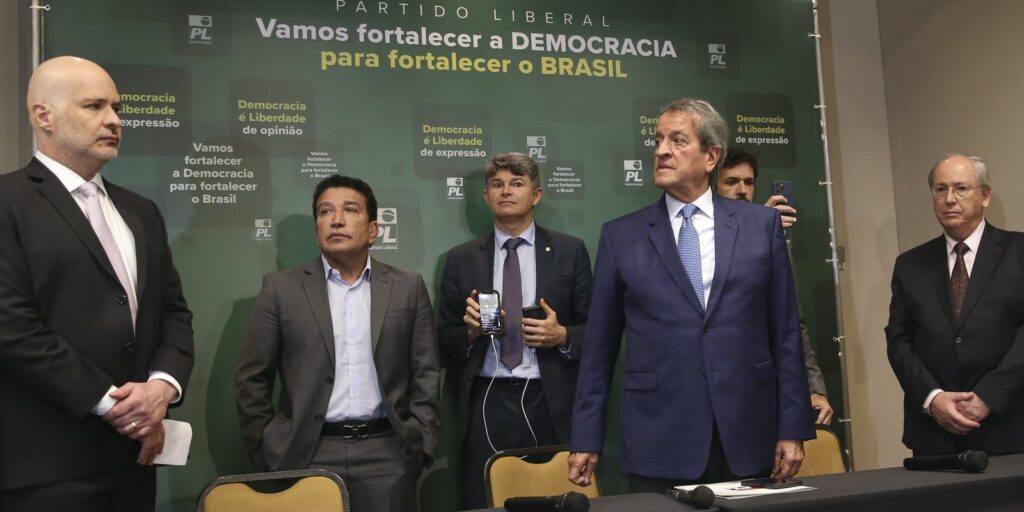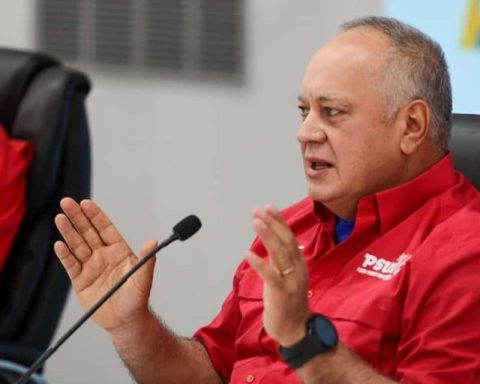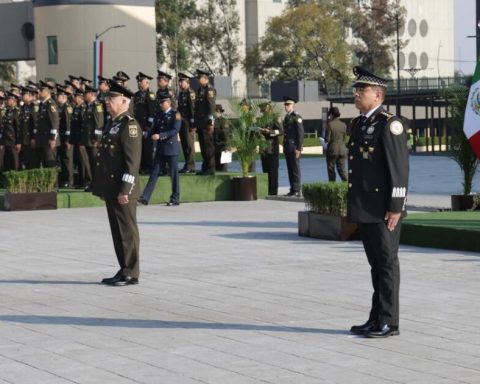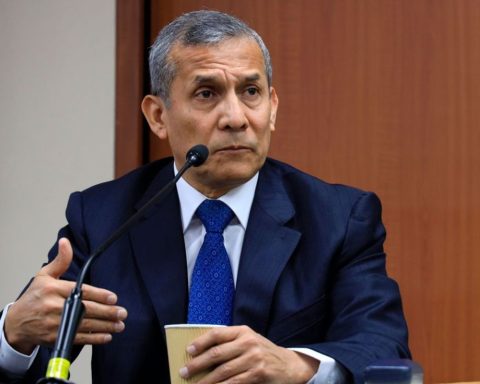The CGT, the CTA and the business chambers agreed in the Salary Council on an increase in the minimum, vital and mobile of 20% in four sectionswhich will be paid 7% in December, 6 in January, 4 in February and another 3% in March 2023, which for the labor portfolio totaled an equal improvement of 110.5% in one year and will allow this credit to reach to almost 70 thousand pesos next March.
“The new increase in the minimum, vital and mobile for the parity year, between March of this year and the same month of 2023, totaled 110.5 percent”reported Labor.
The union leaders of the Autonomous CTA voted against the new increase and pointed out that the agreement implied that “the minimum income will be raised to 69,500 pesos only in March”, indicated the state and leader of that central, Hugo Godoy.
Unionists and businessmen held virtual sessions first in the Technical Commission and, from 4:30 p.m., they began the plenary session, which determined the new amount of the minimum, vital and mobile assets and the minimum and maximum unemployment benefits, and agreed to review again the salary agreement in February 2023.
“We bet and we are committed to the success of the government’s policy, and the proposal that is in force that inflation is reduced, materializes”Rachel Olmos
The CTA, the CGT and the chambers supported the proposal for a 20% salary increase in four tranches and the revision in February, which deserved a harsh rejection from the Autonomous CTA, which ratified its historical positions on the matter at the meeting.
The agreement was finally signed at the Salón de las Mujeres Argentinas del Bicentenario de Casa Rosada by President Alberto Fernández, who was accompanied by the Chief of Staff, Juan Manzur, and the Ministers of Economy, Sergio Massa, and of Labor, Raquel Olmos.
the business sector, represented by Daniel Funes de Rioja (UIA) and that of the workers, through Héctor Daer (CGT) and Hugo Yasky (CTA)They expressed their expectations regarding the agreement.
The President thanked and ratified the importance and responsibilities that each of the sectors assumed to carry out a proposal whose main objective is to combat high inflation and recover the purchasing power of wages, official sources indicated.
“Taken with an absolute majority of the members of the Salary Council, it is another example of the value of our democracy: there is no way to do politics without dialogue. We will continue working for a fairer society where everyone wins,” Fernández later said in his account. Twitter.
Taken with an absolute majority of the members of the Salary Council, it is another example of the value of our democracy: there is no way to do politics without dialogue.
We will continue working for a fairer society where everyone wins. #PeopleFirst ?? pic.twitter.com/zlcF5EcPpc
– Alberto Fernandez (@alferdez) November 23, 2022
The statements of Minister Olmos
After the signing, Olmos ratified in a press conference that “if we take the period of the current minimum, vital and mobile wage, from April 1 to March 31, we will have an increase of 110.5%.”

“We recognize that high inflation goes against wages and that is why it is so important that organized workers and businessmen have been able to agree,” he summarized, adding: “We are committed to the success of the government’s policy, and the proposal that is in force that inflation is reduced, is materialized”, to “recover purchasing power”.
Olmos remarked that “the paritarias are working very vigorously, fundamentally from the inflation process that occurred in the months of July and August, and that motivated the reopening”.
Also. He highlighted that “the national State signed a joint agreement with ATE and UPCN to recover purchasing power plus a year-end bonus of 30,000 pesos for recomposition, which is complemented by retirement mobility, which had an impact on the AUH and AUE”. And he recalled “the decision yesterday to increase the Food Card by 40%, to strengthen the sectors that are most neglected.”
“If we take the indigence comparable to the SMVM, that is, corresponding to the basket of an older adult, it is $45,200, which establishes the INDEC for the month of October”said the minister, and pointed out that “the November SMVM will be at $5,900, that is, it is above the comparable indigence basket.”
“The idea is that even during the months of December and January the index further strengthens the recovery of that SMVM and that this allows us to articulate with this process that the government is promoting to gradually reduce the inflation rate so that in the In the months of February and March, the expected rate is between 4 and 3%, demonstrating the enormous commitment that both businessmen and workers make to the commitment established by the national government,” he completed.

The bonus
Regarding the bonus for the end of the year that the President announced in Bali, the minister clarified that “There are still no more details” and expressed that “we are announcing what we are agreeing on”.
The last meeting of the Salary Council had been on August 22, when the parties agreed -also with the CTAA voting against- a salary improvement of 21% in three sections of 7% between September and November.
The new minimum wage
As of that agreement, the minimum income became 51,200 pesos in September, 54,550 in October and 57,900 this month, while in August the income was 47,850 pesos for full-time monthly workers.
Trade unionists and businessmen They deliberated virtually under the supervision of the labor portfolio and determined the new value of the minimum, vital and mobile, currently 57,900 pesosfor a four-month short tranche and with a new revision in February.
The tripartite meeting was convened by the Government in the face of the high inflationary process and rising prices and was held virtually between chambers and labor unions.
The CGT had met at the national headquarters of the Health Union (Fatsa) to establish a position, as did the Autonomous CTA, while the CTA of the national deputy Hugo Yasky claimed that the new minimum value exceeded 4 points the inflation rate for December and for another wage increase to take place in January.

The National Council for Employment, Productivity and the Minimum, Vital and Mobile Wage met first in the so-called Technical Commission and, then, the plenary of 32 members began -16 for the worker and 16 for the employer-, and agreed on the agreement final.
Yasky had pointed out that given “the impossibility of anticipating inflation” “quarterly reviews” must be carried out -in this case it was quarterly-, because just to avoid losing purchasing power “63,856 pesos would be needed in December in relation to that month of the previous year and 69,197 pesos to recover that of December 2019”, and said that to reach the value of 2015 the minimum amount will have to be 90,000 pesos.
The Central de los Trabajadores de la Argentina Autónoma (CTAA) of Godoy and Ricardo Peidro again rejected the agreement and ratified that in order not to lose against inflation this year, the minimum income in December should be 64,000 pesos; He once again called for “an integral policy so that this asset exceeds inflation and does not lose purchasing power” and also supported the need to legislate and approve “a universal salary”.
The Autonomous CTA demanded an update of the minimum of 47% this afternoon and, in a document after the meeting, Godoy maintained that for a long time “inflation is not determined by price increases but by business speculation, which does not make any effort to distribute the income in favor of the workers”.

Although the leader valued the efforts of the Minister of Labor, Raquel Olmos, to find “an intermediate point”, he said that “the new increase does not even allow sustaining the income level of March and does not recover purchasing power”, and explained that the The demand for an improvement of 47% between November and March was based on the losses of 20% during the macrismo and another 11% as of 2019.
Godoy ratified the need to define a reference basket to “be clear about what is being discussed”; He proposed reviewing the quota of the increases and ratified the demand of the CTAA that the minimum reach the private, rural, state, provincial and municipal sectors, which still “do not have this right,” he said.


















